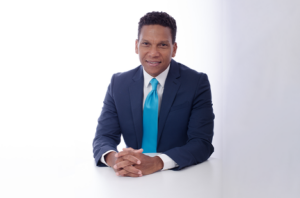It is all a matter of convenience. And it will be the death of many of us. We are living in the fast-food, microwave, my-way-right-away era. Everything is readily available online at your fingertips and with consummate ease. It is a consumer paradise; even the very food we eat can be purchased at the click of a button, hot and ready, delivered to our dining tables hassle-free.
No longer do we need to suffer the frequent failings of local seamstresses and tailors; all our clothes can be purchased online, from unknown sources, in secret sweatshops, fit to our exact sizes, and in our favourite colour and fabrics.
Live, real-time communication, personal endeavours, and private encounters; news—unchecked, uncensored—are flung up on the web for all to see and partake. Each post trying to outdo the other to shock and gain likes on social media’s multitrack super highway where there are no sign posts or warnings.
It is an egocentric operation, where self must be satisfied, every desire must be met, the wildest of imaginations facilitated, gender is fluid, lust is elevated, and comfort is celebrated over common sense.
Convenience is a broad, silky smooth road to hell, excavated and asphalted by the beast, attracting individuals and nations at a time.
Let it be known that the beast is already in full activation. It is the promoter-in-chief of the one-world order with the expressed ideology that all nations will find it convenient and worry-free to align under a sovereign entity that is not God. The deception presents itself as an idea seeking to establish a single, authoritative government to manage the world’s wealth, health, and resources for the benefit of all.
Those who have latched on to this ideology work overtime to force countries into partnerships to achieve this end, never mind the obvious and unstated intention to forcefully separate the Sovereign God from His creation.
For the unsuspecting and unwise, especially corrupt leaders in underdeveloped nations, their skins catch fire at the thought of getting their grimy hands on real wealth and resources, even if it means ditching God in countries that claim to be Christian.
There is serious resistance to the advance of the beast by the Remnant army across the world. For those whose eyes are open, the one-trick pony of fear, as was the choice weapon behind the COVID plandemic, cannot push them into the deadly damnation trap. The Sovereign Lord made it very clear from the outset: He has not given His people a spirit of fear. But large populations who do not know their God will give in to the fear and the promise of plenty with relative ease.
Fear is the train that is driving the world into cashlessness, where real wealth is replaced by digits in a global computer network and accessed by cards and numbers. The fear of touching and exchanging well-worn hard currencies during COVID and the inaccessibility of bank tellers since COVID have pushed many to avoid cash and accept mobile money transactions.
In fact, a primary agent of the beast, the World Economic Forum (WEF), whose mission is to ensure global cooperation on major economic and social issues, has stepped up its march towards having at least 50 nations in five years ditching cash completely and going fully digital.
This WEF ‘50 in 5’ idea, strangely, has a familiar ring. It has a similar sound to a ‘5 in 4’ economic growth programme that was presented to the Jamaican people by their newly elected government in 2016. Whether or not the ‘5 in 4’ was echoing the sounds coming out of the WEF, neither the 50 in 5 nor the 5 in 4 found any level of success.
The Jamaican government abandoned its 5 in 4 plan as year after year the growth targets fell woefully short. Even if the Andrew Holness-led government was not obeying the WEF economic dictates, no one had to wonder if it was wedded to the mission to fully digitalise the Jamaican economy and deliver the illusive promise of convenience.
The Jamaican Prime Minister in 2019 boldly announced to all who would listen that he was determined to see the nation advance speedily into a fully digital economy.
The Prime Minister said the world was on the upswing of the digital era, and he was proceeding in a “very deliberate way” with plans to integrate technology into its daily operations, in keeping with a commitment to ensuring that Jamaica leapfrogs the digital divide.
The Prime Minister was careful not to disclose with whom, when, or where the commitment was made.
However, the WEF and its disciples promoting cashless economies claim that digital transactions or electronic money are convenient for populations, but beyond that, they create an audit trail for law enforcement and financial institutions and can aid governments in economic policy-making.
On its website, the WEF claims that for developed countries, a cashless society will deliver transactions that are seamless, frictionless, and low-cost. And in developing nations, it could deliver life-changing socio-economic benefits.
The promoters of cashless societies do not inform those they target that the convenience of the digital systems also extends to hackers across the globe who have full access to mobile money with little or no recourse for victims.
Using conditions detailed in fine print agreements, banks that hold hard cash for billions of depositors have rid themselves of the liability for their customers’ money when hackers strike digital platforms.
Although financial crimes have garnered fewer headlines than a surge in gang-related gun violence, it has become a growing risk for many nations. Sweden, for example, is an important test case on fighting cashless crime because it is well-advanced in the mission to ditch paper money than almost any other country in Europe.
Sweden’s switch to electronic cash started after a surge of armed robberies in the 1990s, and by 2022, only 8% of Swedes said they had used cash for their latest purchase, according to a central bank survey.
The WEF was soon to find out that much fewer than 50 nations logged on to its five-year cashless push. Despite this, the beast has become bolder with each day and continues to do so on the back of convenience. The generations seek to gain wealth, health, and prosperity while expending very little personal effort and happily pursuing their darkest desires. They accept the beast’s manufactured rights, fake freedoms, falsehoods, and deception in exchange for a promise of a better tomorrow, which he cannot deliver.
Serving God is real work and is often inconvenient. It is a constant battle against the forces of darkness, pushing back the wiles of the enemy, demolishing strongholds, and delivering the undiluted gospel to a resistant world. The great thing is that we are not just victors in this fight; we are more than conquerors. Beyond that, the battle is not ours; it is the Lord’s, and it is already won. In this fight, we are called to sacrifice self and it is inconvenient, but the reward is astounding.
Editor’s Note: FCRN is prayerfully reprinting this very important Commentary as it underscores the critical issues going into the Calendar Year 2025.






